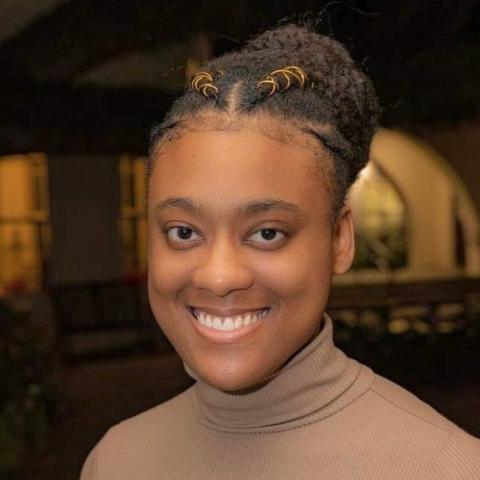Wileesha Stevenson
Instructor
 M.A., University of Louisiana at Lafayette
M.A., University of Louisiana at Lafayette
B.A., University of Louisiana at Lafayette
Office: H.L. Griffin 340
Phone: 337-482-5497
E-mail: wileesha.stevenson1@louisiana.edu
Pronouns: she/her
Teaching and Research Areas
Composition Studies, Technical Communication, Ethics in Professional Communication, Artificial Intelligence in the Workplace and in the Classroom
Recent Courses Taught
ENGL 101: Introduction to Academic Writing
ENGL 102: Writing and Research About Culture
ENGL 103: Foundations of Academic Writing
ENGL 104: Foundations of Academic Writing Tutorial
ENGL 211: The Art of Empathy (Online)
ENGL 365: Technical Writing (Online)
Biography
In 2019, Wileesha J. Stevenson earned her B.A. in English, Professional Writing with a concentration in Child and Family Studies from the University of Louisiana at Lafayette. In 2022, she completed her M.A. in English, Professional Writing from the same university. In 2024, she completed training on teaching methods, tools, and pedagogies practiced in online and hybrid courses, earning her the title of Certified Online Instructor (COI) at the University. She teaches classes in first-year writing, technical and professional writing, and literature.
In addition to her teaching role, she also works in the technical writing industry, where she prepares supporting documents to help industries communicate complex technical information more effectively. She focuses on responding to the needs, preferences, and knowledge levels of underrepresented audiences. This includes accommodating differences in their language, culture, occupation, educational background, and other special identities. In 2024, she presented “Invisible Rhetorical Contexts in Practice: How Well Do Text Generation Systems Enable Technical Writers to Reach Diverse Audiences?” at the Global Souths Conference. Her presentation explored the ethical and rhetorical concerns arising from the use of artificial intelligence (or text generation systems) in this industry, particularly in situation-specific contexts influenced by language, culture, and race.
She continues to advance her research and practices in ways that can enhance teaching, learning outcomes, and interprofessional communication.
